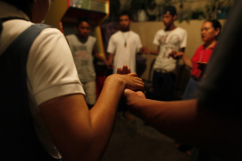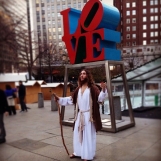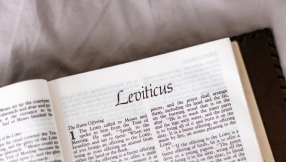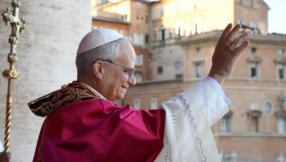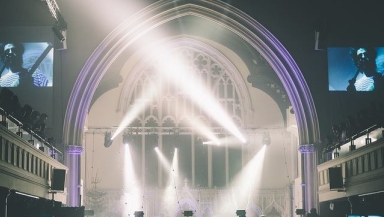
Millennials often get characterised as being materialistic, flaky and a bit self-indulgent. Bad at making plans beyond tomorrow, likely to drop out last minute if we have, and if – on the off chance – we do turn up, it's pretty much guaranteed half our attention will be on snapchat.
Fear not friends, there is hope. An Evangelical Alliance report looking at the views and experiences of young adults in the UK Church has shown that 94 per cent of millennial Christians are committed to a church and 89 per cent are attending weekly. Of that number, 84 per cent serve in their church in one way or another.
Church-going-millennials are not only committing to Church, they're engaging with it and serving in it. Defying the consumerist model so often feared, in which the congregation sits, sings, listens to a sermon and leaves, our generation seems to be committing to Church beyond the Sunday service. We're actually serving the body of Christ to which we belong.
And this is where Church really does become what it was always meant to be; Church is community, Church is family. But this idea of living in relationship in a way that is more focussed on the body of people than on the individual is counter-cultural to many millennials.

We have become consumers, evaluating the value of a product, a service, or even perhaps a church, on the basis of what we can get rather than what we can give. When we go into a church, we enter like a critic might a theatre – evaluating the quality of the worship band, the delivery of the preacher and the calibre of the congregants.
We need to reset; Church is not a service to be consumed, it is a worshipping community that we get to be a part of. Its value is not found in the performance of the band, the teaching of the pastor or the "cool-factor" of the congregants, but in the fact that people are gathering, as family, to worship a God who promises he is in our midst.
I suppose it comes back to what we think of when we think of Church. Whenever the word translated as church, ekklesia, is used in the Bible, it refers to people, and is defined as a called out company or assembly. If we start thinking of Church in this way, it becomes obvious that to be part of a church is to be "called", which in turn suggests an active, rather than passive engagement.
The Church described in Acts 4 is a body of people so close that "no one claimed any of their possessions was their own, but they shared everything." They testified to the resurrection of Jesus and God poured out his grace "that there were no needy persons among them."
We, as twenty- and thirty-somethings, are called to live in community with our churches. This demands sacrifice on our part: we have to commit our time, devote our skills and invest ourselves in this body of people. Building family brings challenges and is messy, but surely it's worth it if the fellowship is genuine.
The key to this is that we stop making everything about ourselves. So often churches will seek us out for service by saying it will help us integrate and get to know other people. This is a true, and great consequence of getting involved, but cannot be the motivation or we'll remain stuck in a cycle of self-centred thinking.
If the Acts 4 vision of Church is to play out amongst our contemporaries, we need to stop seeing Church as there to satisfy our every need and moving on when it doesn't. We need to realise – and EA statistics suggest that we're starting to – that we are part of something bigger than ourselves in Church; we get to be part God's unveiling of His kingdom through His people.
This vision of Church is far more exciting – one that begins with God, and works outwards.












